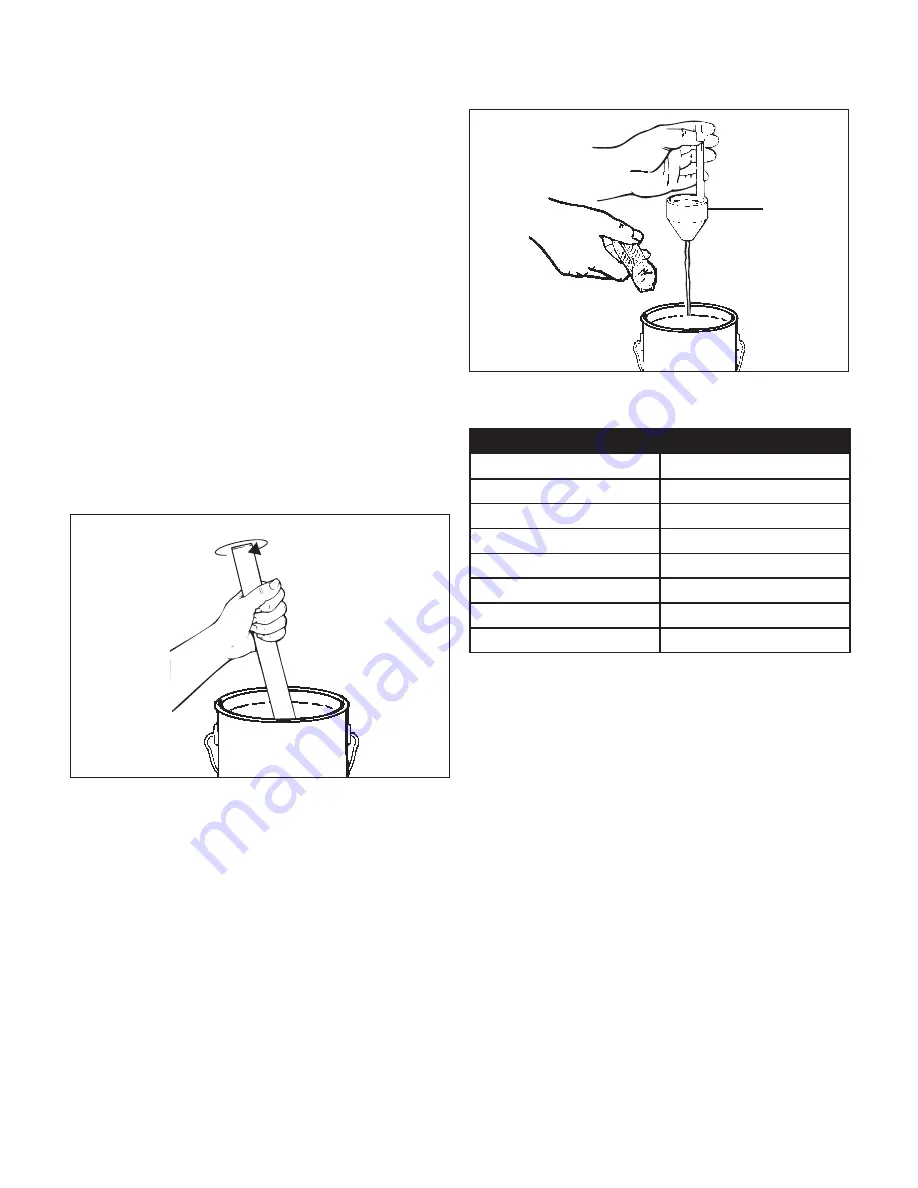
9
4.
Timely recharging of the battery will help prolong the
battery's life. You must recharge the battery pack when
you notice a drop in the equipment's power.
IMPORTANT!
Never allow the battery pack to become fully
discharged as this will cause irreversible damage to the battery.
Preparation
Material Preparation
The material being used may need to be thinned (diluted)
with the proper solvent as specified by the material
manufacturer. Never exceed the thinning advice given by the
coating manufacturer.
m
WARNING!
Do not spray material that has a flashpoint
lower than
73.5ºF (23ºC)
.
After thinning the material, use the viscosity cup included to
test the viscosity of the material. Follow the instruction below
for proper testing the viscosity.
1.
Stir the spraying material thoroughly before measuring
viscosity (Fig. 5).
2.
Dip the viscosity cup completely into the spraying material
and make sure the cup is filled with the material. Hold the
cup with material over the container, measure the amount
of time in seconds it takes for the stream of the material
flowing out to "break" or stop being a constant stream out
of the bottom of the cup. This is the
Runout Time
(Fig. 6).
3.
For proper runout time of specific material, refer the
thinning table below.
THINNING TABLE
Material
Reference Runout Time
Oil enamel
25-40 seconds
Oil based primer
30-45 seconds
Latex
No thinning required
Oil stain
No thinning required
Clear sealer
No thinning required
Polyurethane
No thinning required
Varnish
20-50 seconds
m
WARNING!
Do not spray material that has a runout
time greater than 70 seconds.
NOTE:
Before filling the spray material into the paint container,
make sure to strain the material to remove any impurities in the
paint, which may enter and clog the system. Impurities in the
paint will give poor performance and a poor finish.
Working Environment Preparation
• Make sure the surface is properly prepared for the best
finish. The surface should be free from dust, dirt, rust or
grease. Lightly pressure wash decks or exterior surfaces
and wait until they are dry to start spraying.
• This cordless paint sprayer is equipped with HVLP
technology, which will help to avoid most overspray issues.
However, it's still recommended to mask all edges and
other areas during spraying. Use drop cloths to protect the
floor and anything else in the spraying area that needs to
remain untouched.
• Before starting, have gloves, paper towels, rags, etc.
available for unexpected spills.
Fig. 5
Fig. 6
Viscosity
cup
Summary of Contents for 24V-PS1
Page 20: ...snowjoe com ...






































